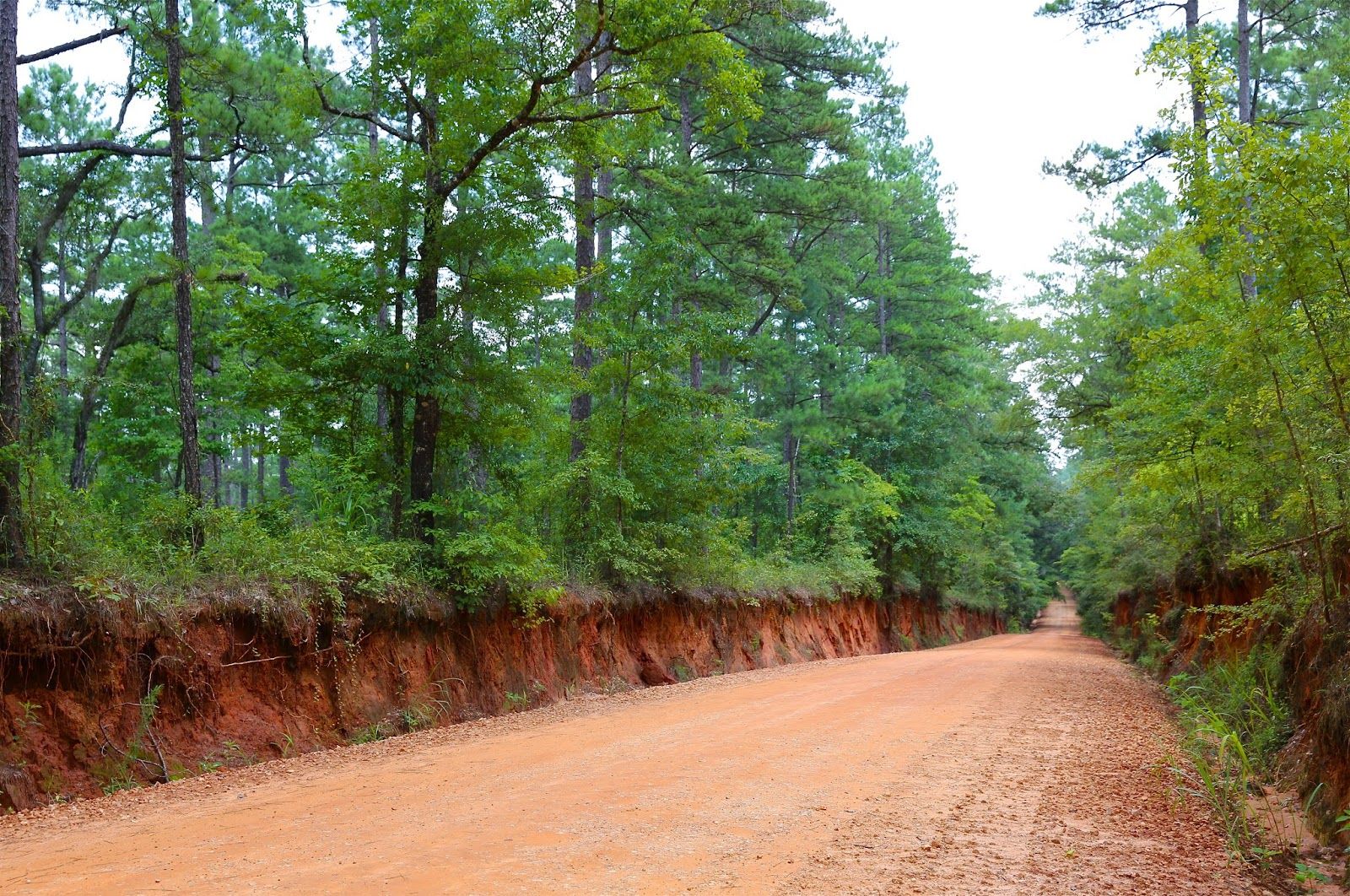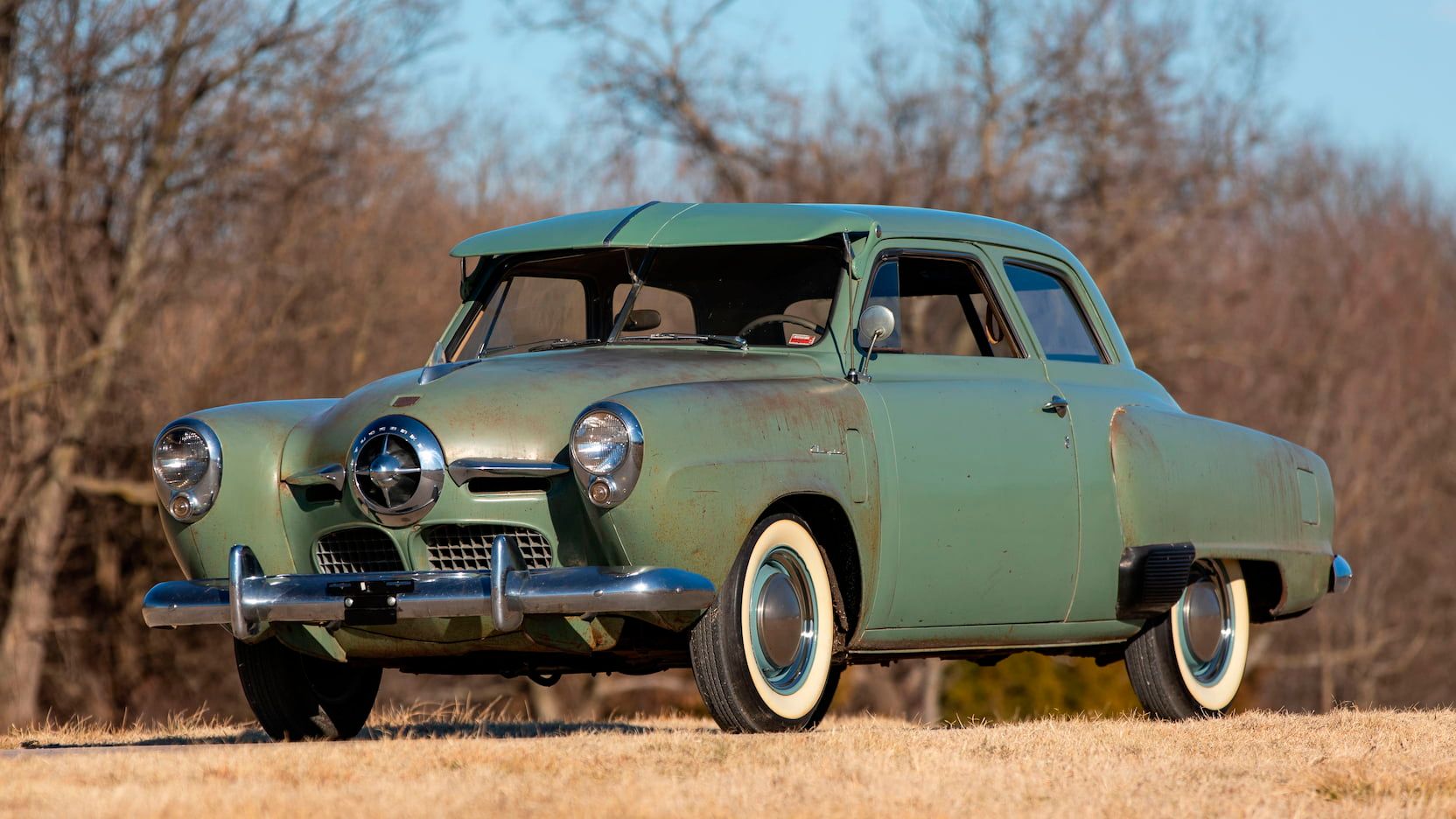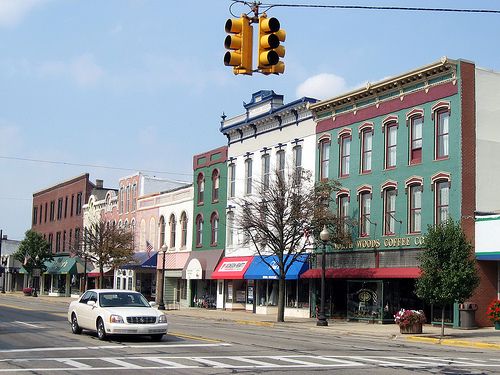A Southern Sensibility
“Well, James, y’all made good time, then,” she said. “I don’t think you coulda made better time than that.” I swear I saw my father blush. No finer accolade might have been offered.

Our first attempt to take a family vacation was abbreviated by money and lousy luck. Cross-country travel by car was still a bit of an adventure in the U.S. in the fifties. In Fort Worth, people driving west to El Paso and Arizona used to meet up and create unofficial caravans to prevent families from being stranded in the desert heat with car problems and no one to help. Overheated rubber tires often blew out, and canvas bags of water were hung around radio antennas for emergencies involving hot radiators.
My father had an old Studebaker, rusted around the bottom from the salt on Michigan roads, but he wanted to go to Mississippi with his wife and four youngest children to see his family. We had no real luggage, but I think Ma found some strong boxes and they were wrapped in plastic and tied by a rope to the roof. There were also clothes and other necessities in cloth bags in the trunk next to the spare tire and the jack. Daddy managed to come up with a canvas water bag to hang off a fender and he roped a second spare tire onto the front grill, which made the car look like it was sucking a lozenge. We cast a profile like Steinbeck’s Joad family, bound for California.

The snout nose of the rattling car pointed south toward Indiana. Because a $12 motel room to sleep was a luxury, the plan was to drive through the night and maybe cross the big river on the giant span at Cairo, Illinois. I was less than ten years old, but I had been dreaming about this adventure and had pictures in my head of my mother sitting happily next to my father in the front seat, the morning sun shining, and the road humming beneath us as we climbed up over the Mississippi and came down into the long rows of cotton. This was no minor embarkation for any family, though. The Interstates were short, broken segments, and state and county highways were rough and often with limited services.
I don’t remember what went wrong because I was too young. I do recall smoke coming from under the hood and hissing sounds and a strange, burned rubber smell in the back seat. The car shuddered to a stop just outside Coldwater, Michigan. Our neighbor drove the three hours to get us home, the two little girls crying through the dark back to our house, my brother and I resolute in our disappointment that the adventure had prematurely concluded. Daddy got his car back, but I don’t recall how. I was old enough to feel embarrassment but was not certain why. I do not think my mother was too disappointed at missing out on Mississippi time, and she, eventually, turned the highway breakdown experience into a joke. Whenever anyone was gone from home longer than expected the question upon return was always, “Where have you been? Coldwater and back?”
“It’s too bad, too,” Daddy said. “Cuz we was makin’ good time, early on.”

If none of your bloodlines run south of the Mason-Dixon Line, you might be oblivious to the glories of “good time.” Culturally, there may have been no modern concept or achievement more important than, “Makin’ good time.” Most Southerners would not even dare to travel unless they were confident in their abilities to “make good time.” On any road trip, though, no one brings up the subject until they have a sense of certain accomplishment. It’s like a baseball pitcher throwing a no-hitter through six innings. No one talks about it. The same with makin’ good time.
In the front seat of the car, a furtive look is exchanged, but not until at least a few hours have transpired.
“Whatcha think? How we doin’”
“I think pretty good. Could be worse.”
“But it ain’t worse. I’ll tell ya what I think. I think we’re already makin’ good time.”
The unspoken covenant at that point, once such a pronouncement had been made, was to keep pressing on at just above legal speeds, torturing bladders and denying hunger, which were secondary to the primary goal. In a few future trips, I only saw Daddy make one unexpected stop. Children wailing about wetting their pants were no distraction from makin’ good time, but when he passed a marquee’ that read, “Fried chicken, $1.99 a bucket,” he wheeled his car around in a turn so fast it felt like we went up on two wheels for a second. There are a few things in life better than “makin’ good time.” But they are all deep fried.
Our destination was always the farm of Aunt Lizzie, my father’s eldest sister. If you had no idea what to expect when you pulled into her gravel drive, your impression might be that you had just met a real-life archetype of one of William Faulkner’s characters. Aunt Lizzie had a hard time parting with a dime, which meant her sandals in the summer to work the garden were old wingtip shoes worn out by her husband. She cut off the toe box to keep her feet cool while she was chopping weeds around the tomatoes and cabbages.
She also wore a long skirt that was dirty and plain material, easily mistaken for burlap, and her flannel shirt in the wet heat of a Mississippi summer was cut at the elbows to offer some relief. Her rotund husband, Uncle Boss, had already sweat through the cotton material a few summers before she made use of his old clothes, not bothering, of course, to even hem the sleeves where she had cut them off above the elbow. Aunt Lizzie’s flesh seemed to drip from her facial structure and her eyes moved about like a wild animal’s scanning for a predator.
But she understood the value of “makin’ good time.”
Daddy got out of the car first at this journey’s conclusion and hugged his sister. I had never seen him show this type of emotional connection, even with our mother.
“Well, James I’m glad to see y’all,” Lizzie said. “When did y’all leave up yonder?” I’m not sure my aunt ever said the name of the state to which her brother had moved. Whatever existed north of Tupelo was a land she’d never know or understand.
“I reckon we was drivin’ about nine o’clock yesterday mornin’,” Daddy told her. The four of us had clambered out of the hot Studebaker and stood in the sun in need of urination and nutrition. Aunt Lizzie, though, had grown silent, and I saw her calculating the hours from our departure to arrival. It took a bit too long for her to conclude her ciphering.
“Well, James, y’all made good time, then,” she said, a bit too ceremoniously. “I don’t think you coulda made better time than that.”
I swear I saw my father blush. No finer accolade might have been offered, but he was humble in his moment of glory. “I suppose we did. I didn’t wanna stop and was ready to be back down here.”
“I just don’t think you could’ve made better time, James,” Lizzie told him. “Especially when you said you left.”
“Well, I wanted to make good time,” Daddy said. “You know how I am coming home.”
“I do, James. I do,” she said. “Now, y’all come on let me show you my garden. I got the biggest tomaters you ever did see for this time of the summer.”
The only character trait that was the near equivalent of makin’ good time was the ability to grow crops in quick abundance. For Lizzie, nothing was more important and showing off her skills was paramount, regardless of the urinary pressures and hunger pangs of her small nephews who had been cooped up in the back seat of a loud, stuffy automobile bound for a “good time” honor from a backwoods horticulturalist. My father’s old car had trundled through the hills of Kentucky and Tennessee with his children fitfully tossing and trying to get comfortable with the windows rarely open to the southern night. The headlights played along the yellow line as his arms curled around the steering wheel, chasing good time.
As we walked toward the distant garden, each step causing a muscular pressure against the bladder, Lizzie again pronounced her judgment.
“James, I just can’t believe how good a time y’all made.”
Daddy beamed. “Yep. I reckon we did. We wanted to get here fast and make good time.”
“You sure did, James.” Aunt Lizzie paused, turned around and faced my father. “I think y’all made good time.”
There was a moment of silence to honor this achievement and the only sound was the summer rattle of cicadas as we came upon the garden’s edge.
“Y’all aren’t gonna believe my peppers, either” Aunt Lizzie said. “And my roastin’ ears has already made.”
Daddy could not say no to her exhortations about her vegetables. He had to listen and look after being granted the honorific of having made good time. To interrupt her explanation of the size of radishes she was bent over pulling from the ground and her cabbages was to risk having Lizzie wonder later in the day if we had actually made good time, which would jeopardize the happiness of the entire trip.
The tomatoes, indeed, were plump with a few lingering streaks of green and the bell peppers were bending their vines. We stood there in the sticky sun and admired her accomplishments of biological plentitude, this marginally sane old woman who had just benighted our journey with the sought-after classification. I only wanted just then to make good time to the bathroom.
“Ain’t they somethin’, James?” Lizzie asked. “I don’t think I ever did see any growin’ like this when we was comin’ up.”
“I don’t think so, either, Lizbeth,” Daddy said. “They sure do look nice for this time of year.”
We all finally turned toward the house and conversation stopped. I hoped my aunt had been sufficiently pleased with our wonder at her vegetables and that her bathroom was clean, but the inside of her house smelled and felt like the detritus from out of doors. My little brother made a face when we entered.
I recall years later while visiting Aunt Lizzie’s with my wife what may have accounted for the odor. We sat one November day on the fireplace hearth near a foot tall stack of old newspapers. Her small dog came over, stood on the pile, and peed. I hollered the news to Aunt Lizzie in the kitchen and said she’d be right in to take care of it, and not to worry. Her solution was to simply place another old newspaper on top of the wet spot, which meant, therefore, we were close by a pile of pissed-upon dog papers that had been accumulating for months. We stayed at a hotel.
Daddy was always hungry, and Aunt Lizzie already had something green in a pot she went quickly to stir while adding ham bones. Uncle Boss, whose actual name I had not yet learned, sat at a swaying wooden table. A plate of cornbread was in front of him, and he took a piece, crumbled it into a glass of milk with ice, and then used a spoon to stir it into a thick yellow substance he scooped out to his mouth. Bits of cornbread and milk appeared at the corners of his smile as he talked and ate, whatever that was in his glass.
“I expect y’all made good time from the look a things.” I swear this was the first thing he had said to my father, his brother-in-law that he hadn’t seen in many years.
“We did,” Daddy said. “Sure, did.”
“Well, sit down. We gonna have some collard greens and ham-hocks here in a bit.”
I knew what neither of those were but took my place in their dark room that held a sour tang in the motionless air and wished I were home. Instead, I got to experience a bit more cultural horror when we drove to another uncle’s place about twenty miles down a gravel road.
Uncle Joe had electricity to his house but no running water. The privy was just a few steps away from the back door and when Daddy decided we were to spend the night I was horrified by the gray bleakness of the place. Before my brother and I went to sleep we were told about the “slop jar” under the bed, into which we were expected to leave our overnight waste and avoid a trip to the wooden outhouse. The jar was more of a porcelain bowl, but we pulled it out and peed in it wondered if it was ever used for doing more serious business, an answer we did not really want to know.
In the morning, I noticed the floor was nothing more than linoleum unrolled and tacked up to crude baseboards along the walls. There seemed to be no wooden subfloor or concrete and years later a cousin told me Uncle Joe and his wife had lived with a dirt floor into the seventies. At the kitchen table, I watched as he pulled a cloth back that had covered food, which had been left out from the previous meal. Eggs and bacon were brought out and served but there were plates and bowls of prepared food that I knew as just a boy ought to have been refrigerated. There were also covered servings sitting on windowsills from recent meals as if sunlight was the perfect preservative.
I nibbled a piece of bacon.
After Daddy had fished a pond for a few hours with Uncle Joe, we drove back to Aunt Lizzie’s slightly more contemporary existence. I watched the loblolly pines pass my window and focused on the bright Mississippi sky and the tail of red dirt rising behind us from the unpaved road. The outdoors was beautiful and maybe my father’s family was not capable of managing the indoors. Prize tomatoes did not mean quality hygiene in their living spaces. I did not know what was habit, economic necessity, or tradition. I only wanted to go back north.
And, God, I hoped we made good time getting out of Mississippi.